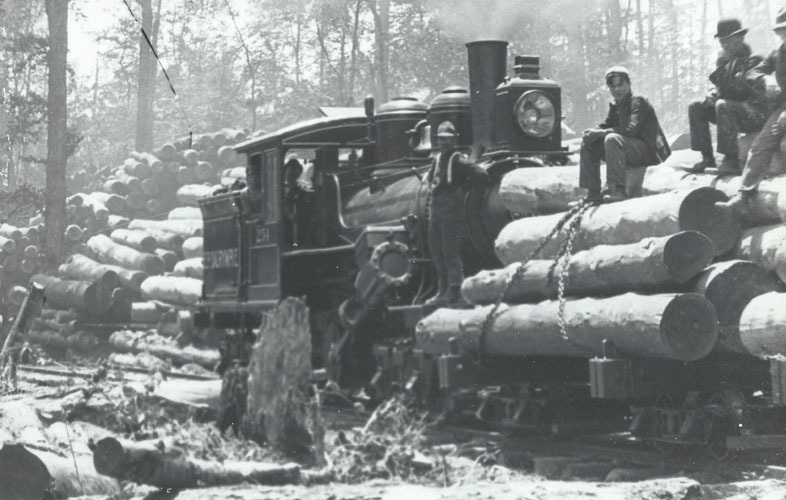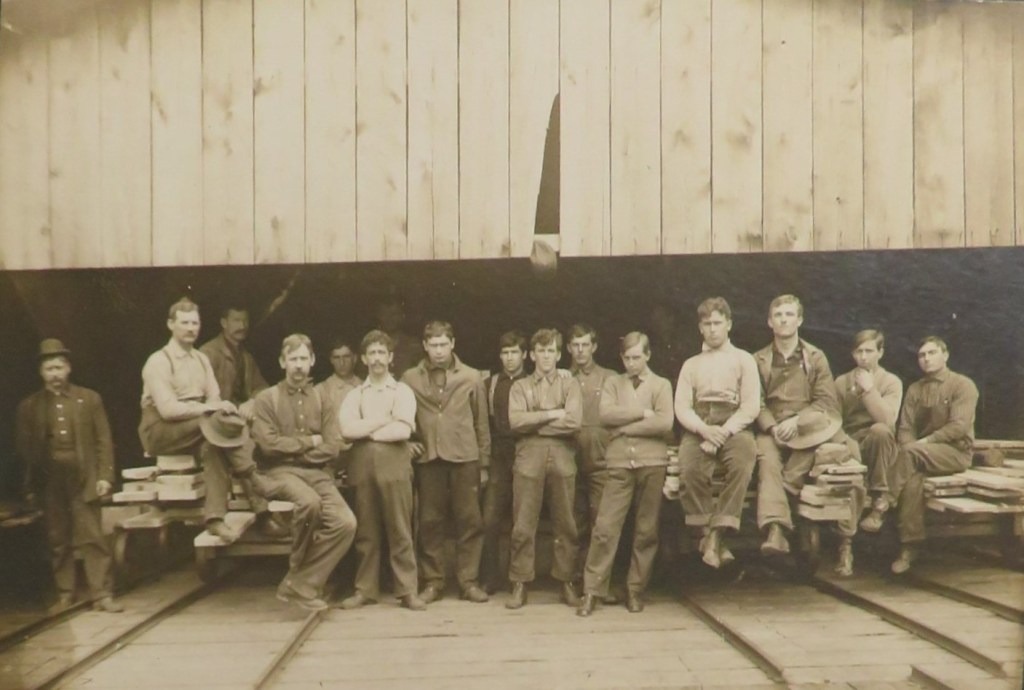Heritage
Heritage
The lumber industry of Warren and Forest Counties in Pennsylvania was once a bustling, vibrant sector that shaped the lives of many in the region. From the heyday of logging camps to the grandeur of sawmills, this post delves into the rich history of the industry, with a particular focus on the Wheeler and Dusenbury Lumber Company.
Lumber camps, whether company-owned like those of Wheeler and Dusenbury or operated by jobbers like T.D. Collins, followed a typical pattern. Each camp featured a kitchen-dining room for over fifty men, a separate building with a lobby and sleeping quarters, a stable for teams, a blacksmith shop, an office, and a store. These camps were usually located near a stream or spring to ensure a reliable water source.
The camp boss, a man of many skills, was responsible for maintaining order and overseeing all camp activities, from cooking to logging. The quality of food was crucial for maintaining morale and productivity. The lobby-hog, a subordinate of the camp boss, took care of the bunks, cleaned the quarters, and kept the lobby stove supplied with wood.

Camps had their own unique characters, often the lobby-hog, who entertained the crew with jokes, tales, and songs. Before the advent of radio and television, these self-invented amusements were vital for the workers’ leisure time.
The end of good skidding weather in spring and the end of the bark-peeling season in June led to an exodus from the camps to town, where workers spent their winter earnings before returning to the woods, mills, or farms.
Many farms in northwestern Pennsylvania were carved from the forest by men who worked in the lumber woods during winter and on their farms in summer.
Lumber was a booming business in Warren and neighboring counties. Logs cut on the mountainsides of Warren County were either floated to the river by splash dams or hauled to the Allegheny by horses. The logs were then formed into rafts, often over 200 feet long, and floated to large sawmills.
The Wheeler and Dusenbury Lumber Company, founded in 1837, operated for over a century near Tidioute. Nelson Platt Wheeler, who took over the business in 1871, represented the area in the U.S. Congress from 1907 to 1911. The company owned 40,000 acres of timber, and in 1922, it sold two-thirds of its land to the Federal Government, becoming part of the Allegheny National Forest. The remaining lands were known as “Wheeler’s Woods.”

Dr. Homer T. Rosenburger described a day spent at a lumber camp in Wheeler’s Woods. He watched lumberjacks skillfully cut large trees with axes and two-man saws, snaking the logs to a pile or pond where they were washed and transported to the sawmill. The lumberjacks lived in a self-sustaining community, with stables for horses and a blacksmith shop, reliant on supplies brought in from the outside.
Initially, crews used axes, crosscut saws, and horses. With time, portable power saws and tractors lightened the workload. Logging crews were top-tier workers who developed massive shoulder muscles from pulling crosscut saws six days a week.
The process of cutting and skidding logs began in the fall before freeze-up. Logs were decked with horses and a “jammer,” and the most skilled men worked in teams, ensuring the safe and efficient felling of trees.

By the early 20th century, the logging industry saw significant changes. The introduction of portable power saws and tractors revolutionized logging operations. Despite these advancements, the decline of the industry was inevitable as forests were depleted, and new, more efficient methods of production emerged.
Today, the legacy of logging in Warren and Forest Counties is preserved through historical records and the memories of those who lived it. The Wheeler and Dusenbury Lumber Company, with its rich history, remains a testament to the industrious spirit that once drove the region’s economy.
For those interested in exploring this rich history, the Warren County Historical Society offers valuable insights and resources. Visit the historical markers and sites to gain a deeper understanding of the logging industry’s impact on the region.
Heritage
Barbara Novosel started a journey to join her husband, Nickola, that would bring her to the remote forests of Pennsylvania. Here they would build a life with their 12 children, leaving an enduring legacy. Read more
© 2025 Lumber Heritage Region LLC | Website Designed & Hosted by Pixel & Hammer